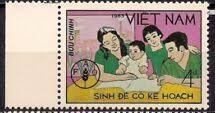Vietnam Family Day is celebrated annually on June 28th. This day is dedicated to honoring the importance of family and fostering the values of love, respect, and responsibility within the family unit. It serves as a reminder of the central role that families play in the social fabric of Vietnam, emphasizing the need to build strong, happy, and harmonious family relationships.
Significance and Activities
Significance
- Promotion of Family Values: Vietnam Family Day aims to promote traditional family values, such as respect for elders, filial piety, and mutual support among family members.
- Strengthening Family Bonds: The day encourages families to spend quality time together, engage in meaningful conversations, and participate in joint activities that strengthen their bonds.
- Awareness and Education: Various programs and events are organized to raise awareness about the importance of family and to educate the public on family-related issues, including domestic violence prevention, child protection, and healthy family relationships.
Activities
- Family Gatherings: Many families use this day to gather for meals, outings, and other activities that allow them to connect and enjoy each other's company.
- Community Events: Local communities often organize events such as cultural performances, sports activities, and workshops focused on family themes.
- Media Campaigns: The media plays a significant role in promoting Vietnam Family Day through television programs, articles, and social media campaigns that highlight the importance of family life.
- Educational Programs: Schools and community organizations may conduct seminars, lectures, and discussions on family-related topics to educate people about maintaining healthy and supportive family environments.
Government and Social Support
- Government Initiatives: The Vietnamese government supports Vietnam Family Day through various policies and initiatives aimed at promoting family welfare and stability.
- NGO Involvement: Non-governmental organizations (NGOs) also play a crucial role by organizing events, providing resources, and offering support services to families in need.
Vietnam Family Day is a time to celebrate the love, unity, and resilience of families. It underscores the significance of family as the cornerstone of society and encourages individuals to cherish and nurture their familial relationships.




.jpg)